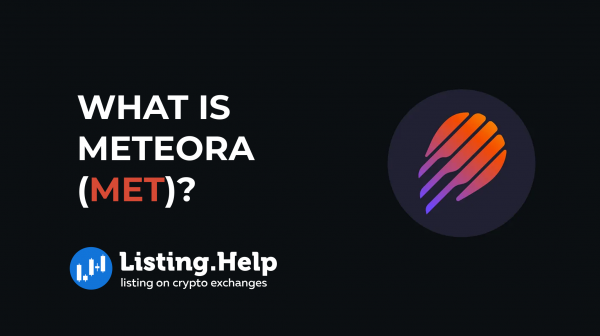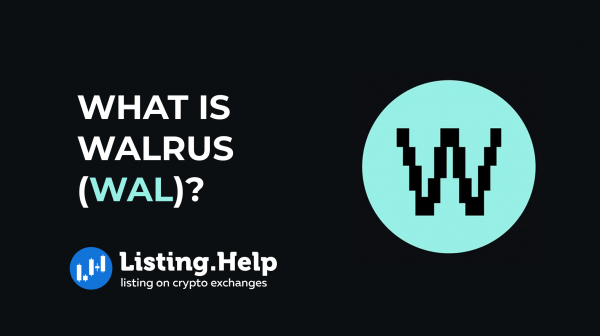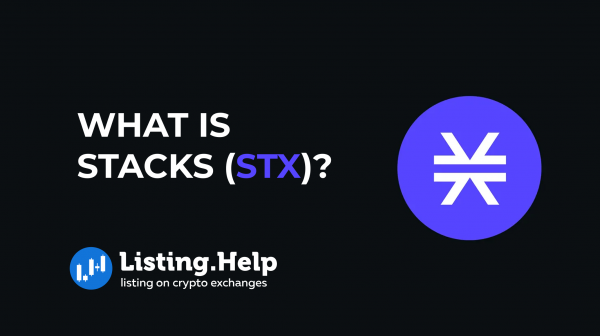What are Smart Contracts on Blockchain?
 January 14, 2024
January 14, 2024 Updated: January 27 2025, 07:22
Updated: January 27 2025, 07:22
LEAVE A REQUEST
Launching your own token project? Our experts are ready to help with listing on exchanges, market making, marketing and other solutions
SUBMIT APPLICATIONA smart contract, in its essence, is an automated digital agreement crafted in code and embedded in a blockchain. It operates autonomously, eliminating the need for intermediaries. Owing to the inherent properties of blockchain technology, smart contracts are secure and transparent, offering users a dependable method to execute agreements and simplify various operations.
These contracts are exceptionally beneficial for direct transactions between two entities, negating the necessity of a third-party mediator to guarantee adherence to the contract’s stipulations by both the buyer and seller. Consider the purchase of digital art. In a conventional setup, an art gallery would typically mediate the transaction.
However, with a smart contract, this third-party role is made redundant. The contract, through its programming, automatically carries out and enforces the terms set forth in the agreement. It functions much like a digital “if-then” scenario. For instance, upon the buyer transferring the specified sum, the smart contract automatically initiates the transfer of the digital art’s ownership from the seller to the buyer.
Being anchored in blockchain technology, they are decentralized and immutable post-deployment. This characteristic ensures their reliability and security. Transactions made via smart contracts are verifiable by other participants on the blockchain, guaranteeing that the contract fulfills its intended purpose without alterations or interference.
How Do Smart Contracts Work?
Smart contracts, a cornerstone of blockchain functionality, operate through a blend of technology, coding, and decentralized agreements. Their intricate workings can be broken down into several key stages:
1. The journey of a smart contract begins with its creation by a programmer. Using a language compatible with a chosen blockchain – like Solidity for Ethereum – the contract is crafted to meet specific needs. Post-creation, it’s deployed to a blockchain network, integrating into its decentralized environment. Ethereum is a popular choice, but alternatives like Solana and Cardano are also available for deploying these contracts.
2. Each smart contract is embedded with code that outlines the terms and rules of an agreement or transaction. These can range from straightforward, single-payment agreements to intricate, multi-step processes involving various participants and data points.
3. Once on the blockchain, a smart contract is ready for use. Activation or invocation occurs when someone on the blockchain interacts with it, typically by calling specific functions and providing necessary inputs. For the average user, this often involves a user-friendly interface, like a DApp connected to a crypto wallet, to perform actions such as purchasing tokens.
4. Invoking a smart contract triggers the blockchain network to validate the transaction. It checks if all set conditions in the contract are fulfilled, a process overseen by multiple network nodes through consensus mechanisms like Proof of Work (PoW) or Proof of Stake (PoS).
5. Post-validation and consensus, the contract executes automatically. The transaction then gets recorded on the blockchain as an immutable entry, ensuring transparency and allowing for auditing. This entry typically contains all transaction details, depending on the specific blockchain’s features.
6. A critical feature of smart contracts is their finality. Once executed, these transactions are irreversible, thanks to the decentralized and secure nature of the blockchain. This finality safeguards the transaction’s integrity, deterring fraud and unauthorized alterations.
What Are Smart Contracts Used For?
Smart contracts, with their secure and automated nature, have applications that extend well beyond simple transactions. They are key to unlocking blockchain’s potential for widespread use by enabling innovative functionalities previously unattainable with conventional systems. Here’s a look at their diverse use cases:
1. Financial Transactions: Smart contracts are pivotal in conducting secure, automated financial dealings. They’re used for transferring digital currencies, processing payments, and executing intricate financial contracts like futures in a direct, peer-to-peer manner.
2. Decentralized Applications: Serving as the backbone for numerous decentralized applications (DApps), smart contracts facilitate a variety of operations. This includes DeFi platforms for lending, borrowing, and trading, as well as gaming platforms where players can handle in-game assets and collectibles through non-fungible tokens (NFTs).
3. Insurance Industry: In the insurance sector, smart contracts streamline processes by automating claims, verifying eligibility, and managing payouts based on set criteria. This reduces paperwork, boosts efficiency, and brings transparency to the industry.
4. Supply Chain Management: Smart contracts enhance supply chain transparency by tracking and authenticating goods movements. They automate critical tasks like order fulfillment, payment settlement, and quality checks, reducing fraud and improving traceability.
5. Intellectual Property Management: For intellectual property like music, art, or literature, smart contracts manage ownership and distribution. They enable creators to set licensing terms, automate royalty payments, and ensure equitable distribution, often using NFTs as a medium.
6. Voting Systems: Implementing secure and transparent voting mechanisms, smart contracts maintain vote integrity, prevent fraud, and allow for instant result tabulation. This contributes to increased trust and transparency in voting processes.
Benefits of Smart Contracts
Smart contracts, an innovative feature of blockchain technology, offer several key benefits that are particularly appealing in today’s digital landscape. Here’s a closer look at these advantages:
1. Speed, Efficiency, and Accuracy: Smart contracts automate and streamline processes, significantly reducing the time and effort involved. Once the predefined conditions are met, they execute instantly, eliminating the need for manual paperwork and the errors often associated with it. This automation not only speeds up transactions but also ensures they are executed accurately and efficiently.
2. Trust and Transparency: The absence of a third party in smart contracts fosters a high level of trust among participants. Since transaction records are encrypted and shared across the network, all parties can be confident that the information hasn’t been altered for personal gain. This transparency is a cornerstone of smart contracts, ensuring that all actions are visible and verifiable by all involved parties.
3. Enhanced Security: The encryption of blockchain transactions adds a robust layer of security, making smart contracts extremely difficult to hack. Additionally, the nature of a blockchain—where each record is linked to the previous and following ones—means that altering a single record would require changing the entire chain, a nearly impossible feat. This high level of security is a significant advantage, especially in transactions where confidentiality and data integrity are paramount.
4. Cost Savings: By eliminating intermediaries, smart contracts reduce the need for various transaction-related services, cutting down on additional costs and fees. This not only streamlines the transaction process but also translates into financial savings, making smart contracts a cost-effective solution for many digital transactions.
Smart contracts offer a combination of speed, efficiency, accuracy, trust, transparency, security, and cost savings. These benefits make them an attractive option for various applications, from financial services to legal processes and beyond, offering a more streamlined, secure, and efficient way to handle transactions in the digital age.
Disadvantages of Smart Contracts
Smart contracts, despite their numerous advantages, also present certain challenges and limitations. Here’s a look at some of these drawbacks:
Dependency on External Data
Smart contracts often rely on external information sources, commonly known as oracles, to obtain real-world data. Although the contracts themselves are designed to be tamper-proof, these oracles can be a weak link, vulnerable to manipulation and inaccuracies. This reliance on external data can introduce risks and potential points of failure in the otherwise secure environment of smart contracts.
Code Vulnerabilities
Like any software, smart contracts can have vulnerabilities or bugs in their code. These flaws can be exploited by attackers, leading to security breaches, financial losses, or other negative impacts. It’s crucial for smart contracts to undergo thorough testing and auditing before deployment to minimize these risks. However, even with rigorous testing, the possibility of undiscovered vulnerabilities remains a concern.
Scalability Challenges
As blockchain networks expand in size and usage, they may encounter scalability issues. These limitations can affect the performance and speed of smart contract execution, especially during periods of high demand. As the blockchain space continues to grow, finding solutions to these scalability challenges remains a critical focus for developers and the community.
Immutability Concerns
The immutability of smart contracts, while often seen as an advantage for security and integrity, can also pose problems. Once a smart contract is deployed on the blockchain, altering or reversing it is not feasible. This rigidity means that any bugs or errors in the contract code are permanent and cannot be corrected. Additionally, if there’s a need to update a contract due to changes in circumstances or requirements, the immutability becomes a significant hindrance.
Conclusion
Smart contracts represent a transformative aspect of blockchain technology, being self-executing agreements that automatically enforce contractual terms without intermediaries. Their integration with blockchain ensures heightened transparency, security, and efficiency. The potential of smart contracts extends far beyond traditional business operations, offering a way to conduct secure, automated transactions, minimize costs, and introduce innovative features.
While smart contracts come with their own set of challenges, the crypto community and various blockchain protocols are diligently working to overcome these issues. Through rigorous testing, enhanced security protocols, and continuous development, these challenges are being addressed. As smart contracts continue to evolve, they are set to drive further innovation and wider adoption, fundamentally altering the landscape of decentralized and trustless transactions in the digital age.

For further insights into the latest trends and developments in blockchain technology, we invite you to explore our blog at Listing.Help.







 January 12, 2026
January 12, 2026 








